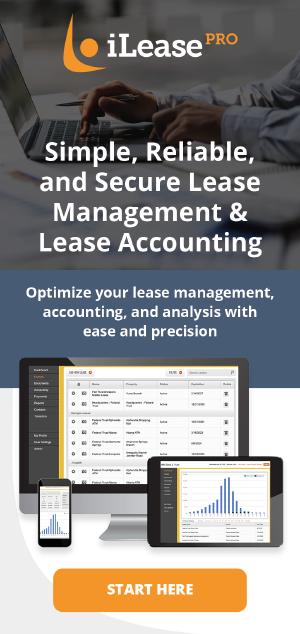Key Updates from the Latest FASB and IASB Meetings
The issuance of the final standard for lease accounting will likely be delayed until the first half of 2012. At the
least, there will be another draft version of the new standard made available for review and comments. There still has
not been any decision made regarding the effective date of the new standard.
The Boards continue to reaffirm
balance sheet recognition for most leases.
Current operating lease accounting can continue to be used for
short-term leases. Short-term leases are defined as those which have a maximum possible lease term, including any
options to renew, of 12 months.
Except in limited circumstances, non-lease components, including payments for
services and executory costs (insurance, taxes and maintenance), would be separated from the lease payments and would be
accounted for similarly to the way that they are currently. The allocation between lease and non-lease components would
be a new process for many lessees and may require significant judgment.
The determination of the lease term is
critical. Currently, the lease term is defined as the non-cancelable period, plus any options periods where there is a
significant economic incentive for the lessee to extend or not terminate the lease.
Changes in certain
circumstances would require reassessment of the original accounting judgments. Reassessment would be required if the
conclusions reached on lease term and purchase options, among other things, changed based upon changes in the original
conclusions regarding significant economic incentives.
The Boards reaffirmed their position that contingent rent
based upon performance or usage would be charged to expense as incurred.
Our View
This
project continues to progress, albeit at a much slower pace than originally projected. Although some of the
complexities contained in the original Exposure Draft have been eliminated, the basic principle of balance sheet
recognition for all leases (except short-term leases) has been maintained. There are still a number of areas that will
be complex and subjective to apply, including determination of lease term, non-lease components and the requirements to
reassess due to certain changing conditions. Companies will have to develop processes and procedures that will allow
them to review lease terms, identify critical dates and reassess original conclusions. Having comprehensive lease
information readily available is crucial. We continue to believe that the technology tool that we are developing will
provide the user with the critical data that is necessary not only to meet the needs of this new accounting requirements
but just as importantly to manage the lease portfolio in an efficient and effective manner.



